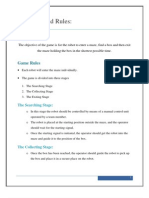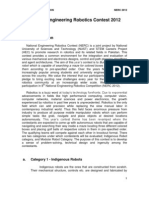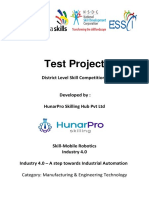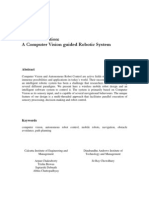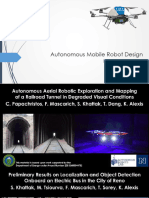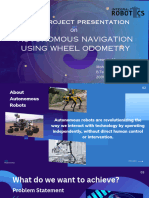0% found this document useful (0 votes)
13 views2 pagesView File
The ROBOFEST-GUJARAT 5.0 guidelines outline the rules for the Senior category's Autonomous Maze Solver challenge, where teams must navigate a complex maze autonomously without external control. Key tasks include maze exploration, mapping, optimized exit, obstacle avoidance, and completion time, with a total maximum score of 110 points. The maze design features multiple entry points, dynamic obstacles, and requires advanced sensor integration and decision-making capabilities.
Uploaded by
realparthozaCopyright
© © All Rights Reserved
We take content rights seriously. If you suspect this is your content, claim it here.
Available Formats
Download as PDF, TXT or read online on Scribd
0% found this document useful (0 votes)
13 views2 pagesView File
The ROBOFEST-GUJARAT 5.0 guidelines outline the rules for the Senior category's Autonomous Maze Solver challenge, where teams must navigate a complex maze autonomously without external control. Key tasks include maze exploration, mapping, optimized exit, obstacle avoidance, and completion time, with a total maximum score of 110 points. The maze design features multiple entry points, dynamic obstacles, and requires advanced sensor integration and decision-making capabilities.
Uploaded by
realparthozaCopyright
© © All Rights Reserved
We take content rights seriously. If you suspect this is your content, claim it here.
Available Formats
Download as PDF, TXT or read online on Scribd
/ 2







